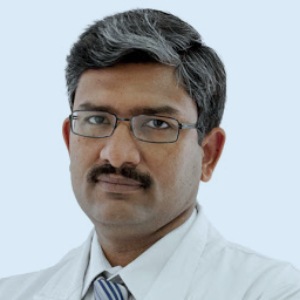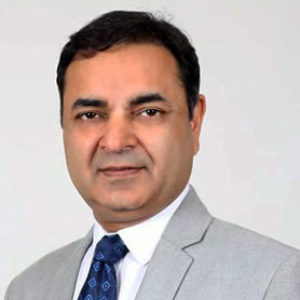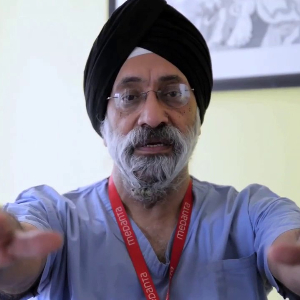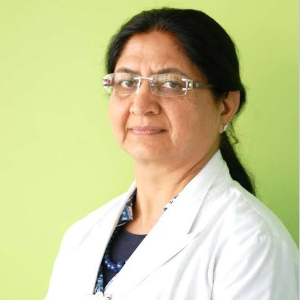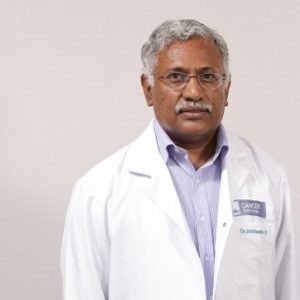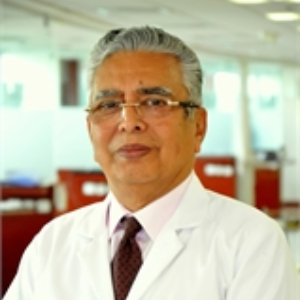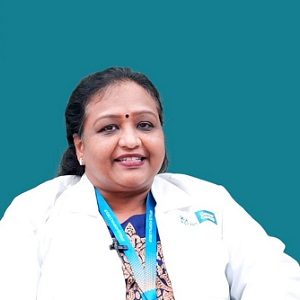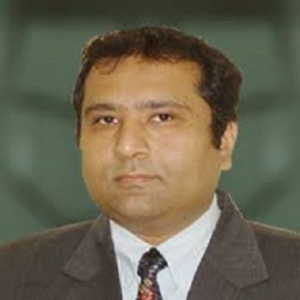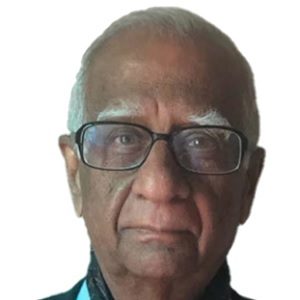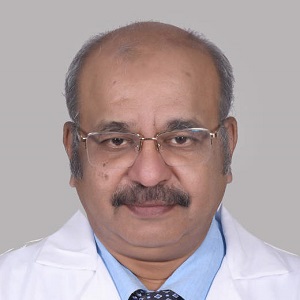Best Gamma Knife Radiosurgery Doctors in India
- Neurosurgeon, Gurugram, India
- Over 25 years’ experience
Profile Highlights:
- Dr. Aditya Gupta is one of the top Neurosurgeons in India who co-founded the Institute of Neurosciences at Medanta and functioned there as the Additional Director of the Department of Neurosurgery.
- He is an active member of the Congress of Neurological Surgeons (US), Neurological Society of India, International Gamma Knife Society Treasurer, Indian Society for Stereotactic and Functional Neurosurgery, and Skull Base Surgery Society.
- Neurosurgeon and Spine Surgeon, New Delhi, India
- Over 25 years’ experience
Profile Highlights:
- Completing over 9000 successful neurological procedures, and still counting, Dr. Sudhir Tyagi is one of the top-notch names in India, diligently catering to neurological assistance with his vast knowledge and adept expertise.
- In fact, Dr. Sudhir Tyagi is the first neurosurgeon to use the Image Fusion Technique to localize targets in the deep part of the brain to perform functional stereotactic surgeries. He has great experience in all types of brain and spine surgeries.
- Neurosurgeon, Gurugram, India
- Over 30 years’ experience
Profile Highlights:
- Dr. V P Singh is a renowned Neurosurgeon with over 30 years of veteran experience. His competence in cranial, spinal, and peripheral nerves has helped him successfully perform 400+ Intracranial Aneurysm surgical procedures.
- Dr. Singh has also been credited for initiating the Gamma Knife Unit and epilepsy surgery program at All India Institute of Medical Sciences, New Delhi.
- He is proactively involved in the treatment of arteriovenous malformations by radiosurgery techniques and is currently the chairman of the Institute of Neurosciences, Medanta.
- Radiation Oncologist, Gurugram, India
- Over 32 years’ experience
Profile Highlights:
- Dr. Tejinder Kataria is a renowned radiation oncologist who holds an experience of about 32 years in the field of radiation oncology.
- She founded the Department of Radiation Oncology at Artemis Health Institute and Rajiv Gandhi Cancer Institute.
- Her interests lie in stereotactic radiotherapy (SBRT), Image-Guided Radiotherapy (IGRT), Intensity Modulated Radiotherapy (IMRT)and 3-D Conformal Radiation (3D CRT), PET-CT, MRI, SPECT, DSA and CT-Simulator fusion for treatment planning.
- Radiation Oncologist, Chennai, India
- Over 25 years’ experience
Profile Highlights:
- Dr. Mahadev P is a radiation oncologist with 25+ years of experience and has played a major role in starting the Diplomate of National Board course in Radiotherapy in 2005.
- After getting trained in Australia, Dr. Mahadev P started Prostate brachytherapy at Apollo Specialty Cancer Hospital.
- Dr. Mahadev is also trained in Cyberknife radiosurgery – the only system in the world to treat tumors in the body with sub-millimeter accuracy.
- Radiation Oncologist, Gurugram, India
- Over 40 years’ experience
Profile Highlights:
- Dr. Subodh Chandra Pande is a well-known radiation oncologist in India. He has a long and rich clinical and teaching experience in the specialty of radiation oncology.
- He included a Dual Energy Linear Accelerator with Multi-Leaf Collimator at Bhagwan Mahaveer Cancer Hospital and Research Centre (BMCHRC), Jaipur & which was a first for the State of Rajasthan.
- Radiation Oncologist, Chennai, India
- Over 24 years’ experience
Profile Highlights:
- Dr. Rathna Devi is a senior Radiation Oncologist who has an experience of 24 years in the field.
- She completed MBBS from M.S. Ramaiah Medical College, Bangalore University, and a Diploma in Radiotherapy from Madras Medical College, Dr. MGR Medical University.
- Dr. Rathna Devi’s areas of expertise include Cranial Cyberknife Radiosurgery, Intensity Modulated Radiotherapy (IMRT), and Stereotactic Body Radio Therapy (SBRT).
- Neurosurgeon, Gurugram, India
- Over 20 years’ experience
Profile Highlights:
- Dr. Sudhir Dubey is a leading Neurosurgeon whose primary area of specialization is Endoscopic Neurosurgery and has been perfecting the procedure since 1998. He has also developed various new Endoneurosurgery techniques for surgeries on the brain, spine, and skull.
- He holds an experience of more than 2 decades in neurosurgery and finds interest in skull base surgery, Pituitary tumor surgery, Brain Aneurysm surgery, CyberKnife Radiosurgery, and brain and spine tumor surgeries.
- Neurosurgeon, New Delhi, India
- Over 60 years’ experience
Profile Highlights:
- Dr. Ravi Bhatia is a veteran neurosurgeon and spine surgeon at Indraprastha Apollo Hospital New Delhi.
- He has about six decades of experience in the management and surgeries of neurological disorders. Before retiring, Dr. Bhatia worked at another prestigious Indian hospital, AIIMS, New Delhi.
- He is particularly interested in Neuro-Oncology, Brain and Spine Tumors, Cerebrovascular Surgery, and Craino vertebral abnormalities.
- To date, Dr. Bhatia has treated neuro patients with a great success rate.
- He authored chapters in many textbooks and has around 95 papers for medical journals to his credit.
- Radiation Oncologist, New Delhi, India
- Over 20 years’ experience
Profile Highlights:
- Dr. G K Jadhav is one of the leading radiation oncologists in India.
- He has a complex understanding of cancer biology, clinical care, and radiation physics.
- Dr. Jadhav has an experience of more than 20 years in the field of radiation oncology.
Best Gamma Knife Radiosurgery Hospitals in India
Indraprastha Apollo Hospital, New Delhi
- City: New Delhi, India
Hospital Highlights:
- Indraprastha Apollo Hospital is a 700-bedded multispecialty hospital in the heart of the capital of India. It is a part of Apollo Hospital group, one of India’s most reputed healthcare chains. Indraprastha Apollo Hospital has been accredited by Joint Commission International, making it the first internationally accredited hospital in the country in 2005.
- There are 52 specialties in the hospital with one of the best cardiology centers in the country. The hospital is also equipped with State of the art infrastructure facilities with the largest Sleep Lab in Asia and the largest number of ICU bed facilities in India.
- The hospital also has one of the largest dialysis units in India along with a dedicated Bone Marrow Transplant unit.
- The latest and highly advanced technologies that are installed in the hospital include Da Vinci Robotic Surgery System, PET-MR, PET-CT, Cobalt-based HDR Brachytherapy, Brain Lab Navigation System, Tilting MRI, Portable CT scanner, 3 Tesla MRI, 128 Slice CT scanner, DSA Lab, Endosonography, Hyperbaric Chamber and Fibro scan.
Fortis Memorial Research Institute, Gurugram
- City: Gurugram, India
Hospital Highlights:
- Fortis Memorial Research Institute is a multi-super-specialty, quaternary care hospital with 1000 beds. The hospital comprises reputed clinicians, and international faculty and is also equipped with cutting-edge technology. The hospital is a part of Fortis Healthcare Limited, a reputed chain of private hospitals in India.
- It is a NABH-accredited hospital that is spread across 11 acres of land and has a capacity of 1000 beds. The hospital has 55 specialties and is one of the premier health care centers in the Asia Pacific region popularly known as “the Mecca of Healthcare”.
- The hospital has 260 diagnostic centers and is also equipped with the latest and advanced techniques that include 3 Telsa which is the world’s first Digital MRI technology. The hospital also has world-class Radiation Therapy techniques which have been developed by leading technology experts from Elekta and Brain Lab.
Apollo Hospital, Chennai
- City: Chennai, India
Hospital Highlights:
- Apollo Hospitals, Chennai, is one of the best hospitals for heart care in India. Over the years, Apollo has expanded all over India, as a healthcare chain.
- India’s first ‘Only Pancreas’ transplant was performed in Apollo Hospital. The hospital is known for successfully performing Asia’s first en-bloc combined heart and liver transplant, and over the years, it has attained a remarkable achievement in the global healthcare space. Around 3-4 organ transplants are performed in the hospital per day.
- Equipped with over 500 beds, this hospital in Chennai was established in 1983 and since then has been among the most preferred hospital for patients from all over the world.
- The hospital holds accreditation of the NABH and JCI and is the first hospital in India to be ISO 9001 and ISO 14001 certified. It is also the first South Indian Hospital to receive subsequent reaccreditation from the JCI USA 4 times.
Medanta-The Medicity, Gurgaon
- City: Gurugram, India
Hospital Highlights:
- One of India’s best and largest multi-specialty hospitals, Medanta was built with the aim to bring India to the highest standards of medical care. The hospital has been providing the best medical services to its patients, since its inception, with care, commitment, and compassion.
- Equipped with 1250 beds, the hospital was founded by Dr. Naresh Trehan in the year 2009 with an aim to provide the best medical care at affordable costs. The hospital is spread across 43 acres and includes 45 operation theatres and 350 beds dedicated solely to ICU. The hospital includes over 800 doctors, and more than 22 specialty departments and has a dedicated floor for individual specialty in order to offer the best services under one roof.
- The hospital is considered one of the premier institutes in India for Cardiac Care and includes staffs and members of high caliber. The hospital has 6 distinct centers of excellence.
Max Super Specialty Hospital, New Delhi
- City: New Delhi, India
Hospital Highlights:
- One of the well-regarded providers in India committed to the highest standards of clinical excellence and patient care, Max Super Specialty Hospital is a part of Max Healthcare, which is the second-largest healthcare chain in India. Regarded as one of the most well-regarded healthcare providers in the country, Max Super Specialty Hospital is committed to the highest standards of clinical excellence as well as patient care. The hospital is also equipped with the latest technology as well as cutting-edge research. The hospital is known to deliver and ensure the highest level of patient care.
- The hospital has more than 500 beds and offers treatment for over 35 specialties. The hospital also holds the credit of having installed the first Brain Suite in Asia. This is a highly advanced Neurosurgical machine that allows MRI to be taken while surgery is ongoing.
- Other advanced and latest technologies are also installed in the hospital such as the 1.5 Tesla MRI machine, 64 Slice CT Angiography, 4D ECHO, LINAC, and 3.5T MRI machine.
Artemis Hospital, Gurugram
- City: Gurugram, India
Hospital Highlights:
- One of the most well-known hospitals in the Delhi NCR, Artemis Hospital is the first hospital in Gurugram to get accredited by the Joint Commission International.
- With more than 40 specialties, the hospital has been designed to be one of the most technically advanced hospitals in the country, with the best medical and surgical health care. The hospital has eleven special and dedicated centers, for Heart, Cancer, Neurosciences, etc.
- The latest technologies in the hospital include Endovascular Hybrid Operating Suite and Flat panel Cath Labs for the cardiovascular department, 3 Tesla MRI, 16 slice PET CT, 64 Slice Cardiac CT Scan, HDR Brachytherapy, and highly advanced Image Guided Radiation Therapy techniques (LINAC) are installed in the hospital.
- The hospital has won several awards as well, since its inception.
BLK Max Super Specialty Hospital, New Delhi
- City: New Delhi, India
Hospital Highlights:
- Equipped with 650 beds, BLK Superspecialty Hospital is the largest stand-alone private sector hospital in Delhi.
- With over 1500 healthcare providers and 150 globally renowned super specialists, the hospital is one of Asia’s largest Bone Marrow Transplant Centres. The hospital is known for having some of the best cancer doctors in the country.
- The hospital is NABH and NABL accredited and was inaugurated by the first Prime Minister of India. Pt. Jawahar Lal Nehru.
Gleneagles Global Hospitals, Chennai
- City: Chennai, India
Hospital Highlights:
- Established in 1999, Gleneagles Global Hospital, Chennai, is one of the top healthcare facilities in Southern India. It is part of the Gleneagles Hospital Chain, which is the fourth largest healthcare chain in the country. The hospital specializes in multi-organ transplants of kidneys, liver, lungs, heart, etc.
- The hospital has an excellent infrastructure and state-of-the-art lab and equipment set-up. The hospital boasts cutting-edge technologies, a highly skilled team of doctors and surgeons, and trained support staff. Located in Perumbakam, Chennai, it is one of India’s premier health care destinations. The hospital has performed some of the most complex surgical and clinical procedures in India including multi-organ transplantations.
- The hospital’s lung transplantation program is one of the best in the country. The hospital is known for having performed India’s first single lung transplant and first minimal invasive lung transplant. It is also the only Indian hospital to be associated with King’s College Hospital, London, United Kingdom for liver transplantations.
Fortis Hospital, Mulund, Mumbai
- City: Mumbai, India
Hospital Highlights:
- Fortis Hospital in Mulund is a 315-bed multi-speciality tertiary care hospital with five JCI accreditations that offers a wide variety of diagnostic and therapeutic services. The Fortis Hospital in Mulund delivers patient-centred treatment with cutting-edge technology, highly skilled and experienced surgeons, and paramedical staff.
- This institution houses Maharashtra’s largest multi-organ transplant centre. It is also the first heart transplant centre in western India to conduct 100 or more consecutive heart transplants in under four years. It is the only hospital in the city to have multi-organ transplants and has handled the youngest patient for angioplasty. Fortis Hospital Mulund now boasts the first advanced surgical robot in central Mumbai.
- Cardiology and heart surgery, urology, nephrology, neurosciences, orthopaedics, digestive care, emergency and critical care, and maternity care are among the services provided by the hospital.
Kokilaben Dhirubhai Ambani Hospital, Mumbai
- City: Mumbai, India
Hospital Highlights:
- Kokilaben Dhirubhai Ambani Hospital, Named after the wife of Indian industrialist Dhirubhai Ambani, the founder of Reliance Industries, this is one of the top hospitals in Mumbai. This 750-bed multi-specialty hospital became operational in 2009. Known as one of India’s most advanced tertiary care facilities, the hospital is designed to raise India’s global standing as a healthcare hub, with an emphasis on excellence in clinical services.
- Kokilaben Dhirubhai Ambani Hospital uses Protocol and Care Pathway based treatment models to ensure the best outcomes for patients.
- The hospital represents a confluence of top-notch talent, cutting-edge technology, state-of-the-art infrastructure, and, most importantly commitment.
- The hospital also holds the accreditation of the NABH, NABL, CAP, and JCI.
- The hospital has been recognized as the No. 1 Multispecialty Hospital in Mumbai and the West Zone for the fifth year in a row in 2020 by The Week.
Gamma Knife Radiosurgery
Purpose
Gamma Knife radiosurgery is considered a safer alternative to standard brain surgery i.e. neurosurgery. Standard brain surgery requires incisions in the scalp, an opening in the skull as well as the membranes surrounding the brain. Then your surgeon needs to dissect into the brain tissue. However, these steps are not required with gamma knife radiosurgery.
Gamma Knife radiosurgery is considered when a tumor or other abnormality in the brain is difficult to reach with standard neurosurgery. It is also preferred by patients by aren’t healthy enough to undergo standard surgery or by patients who prefer a lesser invasive treatment.
In some cases, Gamma Knife radiosurgery has a lower risk of side effects as compared to other types of radiation therapies. Compared to conventional radiation therapy which requires up to 30 days of treatment, gamma knife radiosurgery can be completed in a single day.
This procedure is most usually used to treat the following conditions-
Brain tumor: Gamma knife radiosurgery is quite useful in the management of small noncancerous and cancerous brain tumors.
Radiosurgery can damage the genetic material in the tumor cells. These cells lose their ability to reproduce and thus they die leading to the tumor to gradually shrink.
Arteriovenous malformation (AVM): AVMs are abnormal tangles of veins and arteries in the brain. In an AVM, blood flows from the arteries to the veins, bypassing smaller blood vessels which are also known as capillaries. AVMs, if left untreated, may “steal” the normal blood flow from the brain. This can cause a stroke and cause bleeding in the brain.
Gamma Knife Radiosurgery can effectively destroy the AVM and cause the blood vessels to close off over some time.
Trigeminal neuralgia: This is a disorder of one or both of the trigeminal nerves, which work to relay sensory information between your brain and areas of your forehead, cheek and lower jaw. This disorder can cause disabling facial pain which gives a feeling resembling an electric shock.
After this treatment, people will experience pain relief within a few days to a few months.
Pituitary tumors: Tumors of the bean-sized gland, located at the base of the brain can also cause multiple problems. The pituitary gland is responsible for the hormones in your body that control several functions, such as your metabolism, stress response, and sexual function.
Gamma Knife Radiosurgery can help in shrinking the tumor and it will also lessen the disruption of pituitary hormone regulation.
Acoustic neuroma: An acoustic neuroma also termed as a vestibular schwannoma is a noncancerous tumor that develops along the nerve of balance and hearing which leads from your inner ear to the brain.
When this tumor puts any pressure on the nerve, you can experience problems such as loss of hearing, loss of balance, dizziness as well as ringing in the ear. As the tumor continues to grow, it can even put pressure on your nerves affecting sensations and muscle movement in the face as well.
Gamma Knife Radiosurgery can help to stop the growth of an acoustic neuroma.
Preparation
First, the physician will be gathering your medical history and will be performing a complete physical exam. You might also need to undergo additional tests. If you are allergic to any medications or anesthetic agents have a heart pacemaker implanted medication pump, aneurysm clip, implanted nerve stimulator, metal from trauma, metal implants, severe lung disease, cochlear implant, spine stabilization hardware or esophageal reflux, then you need to inform your doctor. You also need to inform him/her if you are unable to lie flat on your back for 30 to 60 seconds, or if you suffer from claustrophobia.
You will need to arrange for a friend or family member to go with you on the day of your procedure. A nurse will inform you a day before the procedure to confirm the arrival time and answer any queries that you might have. On the evening before the procedure, do not consume any food or drink after midnight. Also, remember to wash your scalp properly.
Remember to wear your hair loose and avoid any clips, bands or pins. Do not use any hair spray or any other kind of styling product.
On the morning of the treatment, take your medications with sips of water. Bring all prescribed and over-the-counter medications with you. Also, make sure that you wear comfortable clothing. Avoid wearing a shirt that needs to be put on and taken off over the head.
Procedure
First, you will lie on a bed that slides into the Gamma Knife machine. Your head frame will be securely attached to a helmet inside the machine.
An intravenous tube will deliver fluids to your bloodstream so that you are hydrated during the procedure. Soon the bed you lie on will be sliding into the gamma knife machine.
The time taken for the procedure to be completed can sometimes be less than an hour. In some cases, it can take around four hours. Usually, this depends on how big the target is.
You will not feel the radiation, during the procedure, nor will you hear any noise during the procedure. There will be a microphone through which you will be able to communicate with the doctors.
Though Gamma Knife radiosurgery is an outpatient procedure in some cases, an overnight stay at the hospital might be required.
After the Procedure
Once the procedure is complete, the head frame will be removed and you will be able to eat and drink again. If you experience headache, nausea or vomiting after the procedure, you will be receiving the appropriate medications. You might experience minor bleeding or tenderness at the pin sites.
It is recommended that you ask a friend or family member to stay with you for the first night after the treatment to watch for any side effects. For a minimum of one week, keep your head in an elevated position on a pillow. This can help lessen any swelling at the pin sites as well as help in minimizing pressure within your head.
How successful the treatment is, depends on several factors including the size, location, type of lesion, your personal medical history and several other factors. It is best to discuss your expectations and outlook with your doctors before the procedure.
Risks
Since Gamma Knife radiosurgery doesn’t involve surgical incisions, it is less risky as compared to traditional neurosurgery. In traditional neurosurgery, there are potential complications which are associated with anesthesia, bleeding and infection.
Usually, any early complications or side effects are temporary. Some patients can experience mild headaches, a tingling sensation on the scalp, nausea or vomiting. Sometimes, there might be other side effects too, which can include fatigue, swelling or scalp and hair problems.
Video explanation
Possible side-effects
Although Gamma Knife is a safe and widely accepted procedure, the patient may experience the following side-effects/discomforts during and after procedure:
- Local discomfort of the scalp at the sites where pins are inserted.
- Numbness of the scalp around pin, which may resolve over a day or two.
- Mild Headache & nausea, resolving rapidly.
FAQs
How effective is Gamma Knife surgery?
Gamma Knife Radiosurgery is considered quite effective. Seventy to 90 percent of AVMs are completely obliterated. Gamma Knife radiosurgery has prevented tumour growth in 97 percent of patients.
Is the Gamma Knife painful?
It is bloodless, virtually painless, does not result in hair loss and has a rapid return to pre-treatment activities.
How long does Gamma Knife surgery last?
30 minutes to 3 hours depending on the plan.

